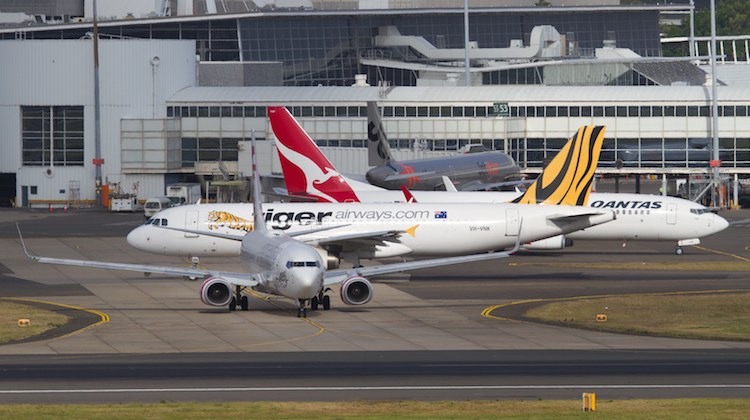
Passengers looking for bargain airfares are likely to be in luck in February with ticket prices lower than they were a year ago, while those keen for a seat at the pointy end of the aircraft should expect to pay a bit more for those business class seats, government statistics suggest.
The Bureau of Infrastructure, Transport and Regional Economics (BITRE) monthly report on domestic ticket prices showed the index measuring the best discount economy fare was at 59.5 index points in February. It was the lowest February figure since 2011 and well down from 64.6 in February 2015.
Further, the BITRE report figures showed the best discount economy index has been lower for the past four months, when compared with the prior corresponding period.
The report indicates Australia’s domestic carriers have been trying to keep ticket prices low in an effort to stimulate demand among price-sensitive leisure travellers, a market segment Virgin Australia chief executive described as “patchy”.
“It is fair to say that looking at it today, in today’s environment, the market is still pretty soft,” Borghetti told reporters during Virgin’s 2015/16 first half results presentation in Sydney on Thursday.
“The business traveller keeps travelling. We are not seeing any downside.
“But the leisure side, I wouldn’t call it buoyant. It is very patchy.”
The more positive conditions in business and corporate travel market is underscored by the BITRE business class index rising to 95.1 points in February, compared with 89.4 points in the prior corresponding period.
Virgin said on Thursday its domestic network achieved 9.1 per cent yield growth in the six months to December 31 2015, with a higher proportion of business and corporate travellers on its aircraft helping boost the industry measure of average airfare per passenger.
The airline is targeting having 30 per cent of its domestic revenue generated by corporate and government travellers by the end of the 2016/17.
“In Virgin you’ve had a situation where the yield mix keeps continuing to improve, weighted towards the business traffic which moves the average up,” Borghetti said.
However, Borghetti said there were still plenty of bargains out there, with airfares today cheaper than they were five years ago.
“You look at some of the lead-in fares for domestic travel, some of them are cheaper than your cab ride from home to the airport,” Borghetti said.
Qantas reports its first half financial results on February 23 and has forecast an underlying profit before tax, the airline’s preferred measure of financial performance, of between $875 million and $925 million, compared with $367 million in the first half of 2014/15.




